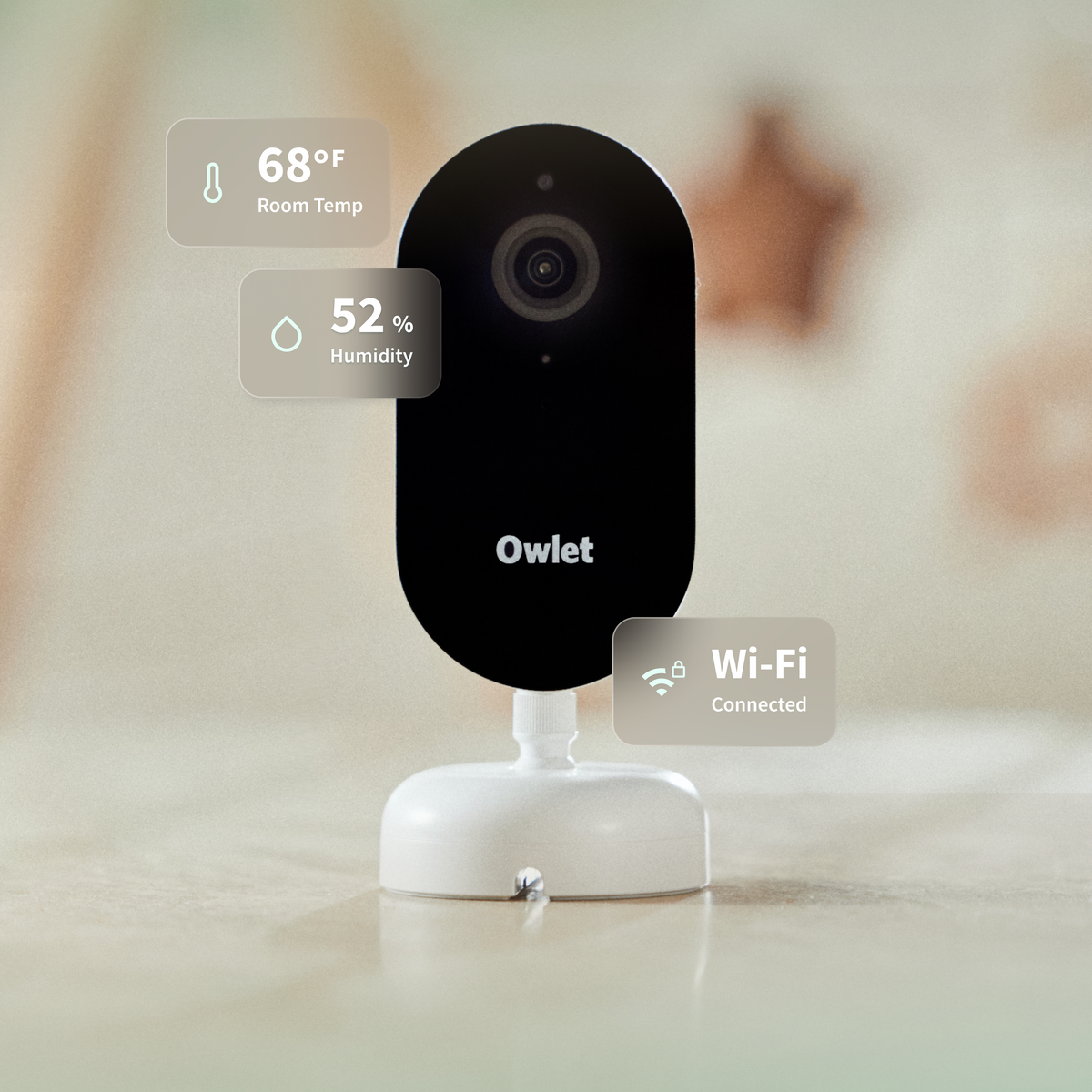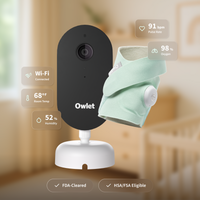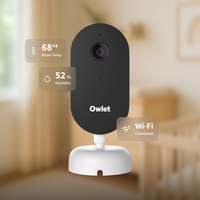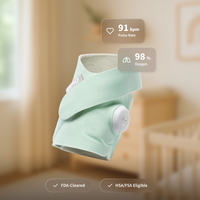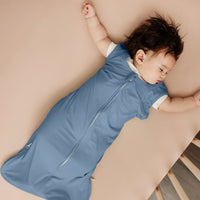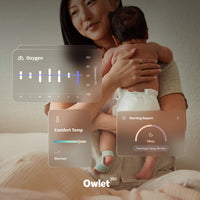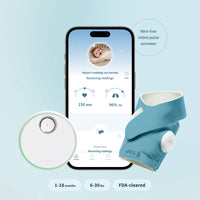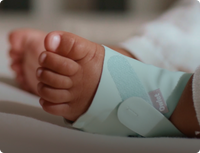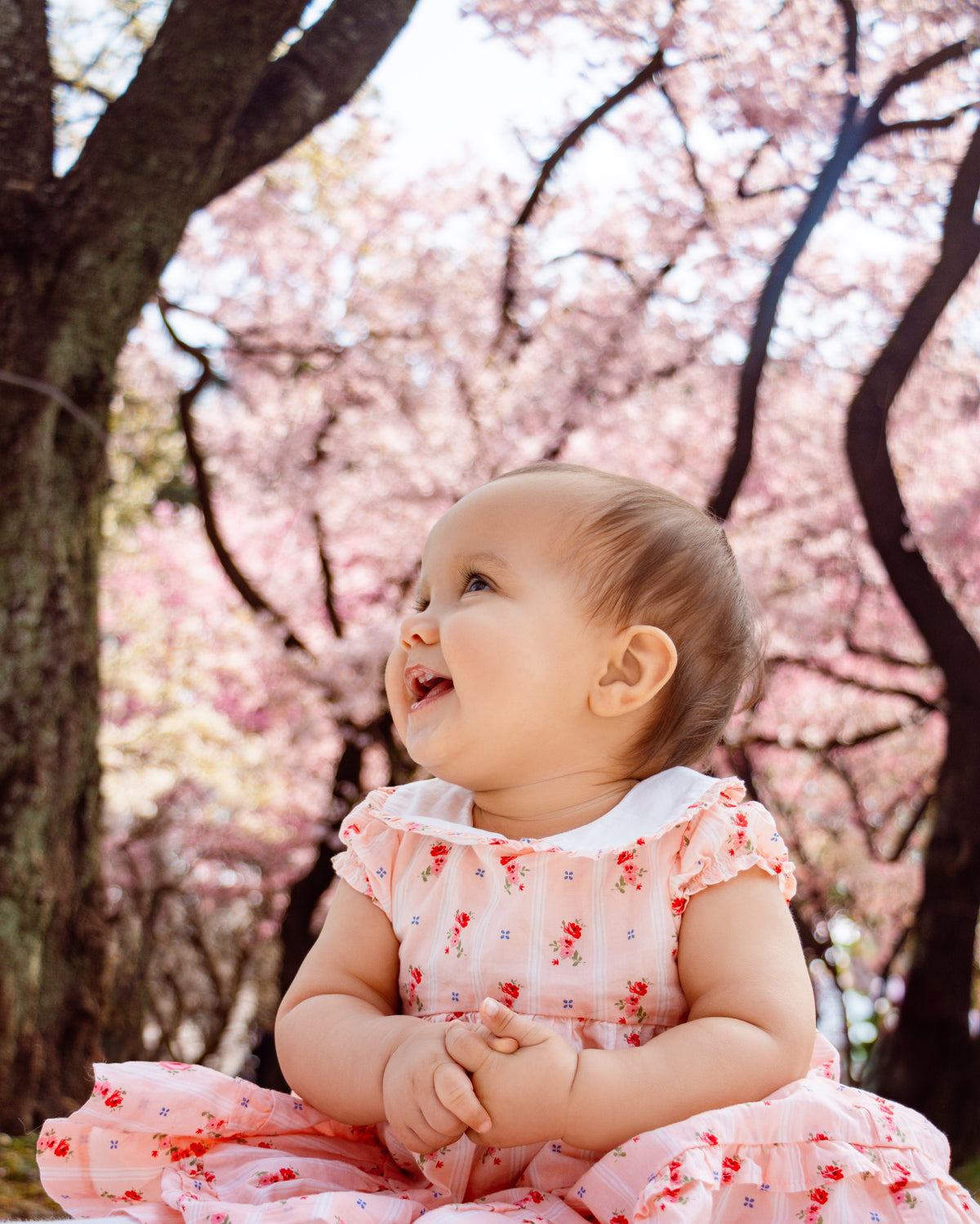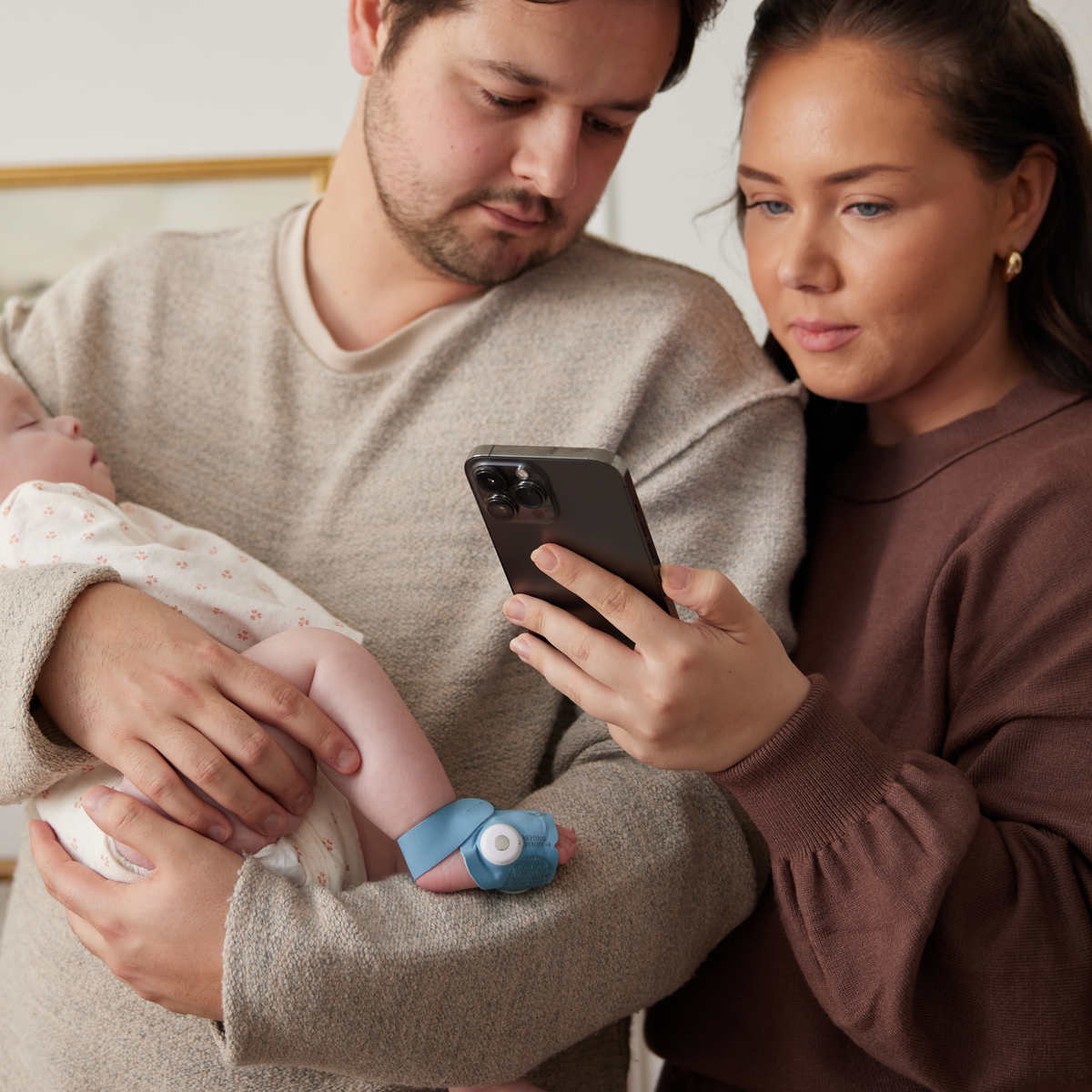Helping and Healing: How One Mom Turned Her Challenging Pregnancy Into an Opportunity to Help Others

Owlet Cares is our advocacy initiative that is dedicated to making a positive impact in the lives of babies and parents. One way we do this is by partnering with nonprofits all over the world who share our mission. These groups participate in our 3:1 match program. When they purchase one Owlet product, we match it with two, meaning three families are reached.
Each month, we shine a spotlight on one of our foundation partners and the important work they are doing. This month, we’d like to introduce you to Katie Shanahan of the Allo Hope Foundation which empowers, educates and supports alloimmunized patients and their providers.
In her own words, this is Katie’s story.
By: Katie Shanahan
It has been 2.5 years since my family’s high risk pregnancy journey with maternal alloimmunization and HDFN (hemolytic disease of the fetus and newborn). What was supposed to be a beautiful pregnancy experience, turned into a traumatic journey for which I have just begun to heal from.
Maternal alloimmunization is a rare, high risk pregnancy condition where a mother develops antibodies that travel through the placenta and attack a developing fetus’s red blood cells causing fetal anemia. Left untreated, this condition in the baby called HDFN (Hemolytic disease of the fetus and newborn) could be fatal.
I developed antibodies after incorrectly not receiving a preventative medication called Rh Immunoglobulin, commonly known as RhoGAM, when I should have. When I was diagnosed with red cell antibodies that would attack my future pregnancies, my husband and I were advised that each subsequent pregnancy would likely be more severe and I lost all hope for the large family I had always dreamed of.
In March 2021, I found out I was pregnant with a baby boy. We were so excited; I had always dreamed of being a boy mom. We were also very relieved as my antibody levels were low. Things were going well, and we had just told our friends, family and coworkers that we were pregnant. Unfortunately at 13 weeks, I was standing in the kitchen and felt a gush. I quickly went to the bathroom and was bleeding profusely. I thought I had lost my baby boy. We went to our local hospital where, to our surprise, our son's heart was beating away on ultrasound. It was something I did not expect and will never forget. We were diagnosed with a subchorionic hematoma which we were told can be common in pregnancy. Due to the large amount of bleeding I had with maternal and fetal blood mixing, a few weeks later my antibody levels hit a critical level which meant we required more intensive monitoring of my pregnancy.
We quickly initiated weekly specialized ultrasounds to assess for fetal anemia caused by my antibodies attacking my baby. Unfortunately around 25 weeks my baby boy was found to be severely anemic and we underwent an intrauterine blood transfusion the next day. This is a highly specialized, technical procedure that can only be done by an experienced maternal-fetal medicine (MFM) specialist where donor blood is given to the fetus via the umbilical vein. During my pregnancy we went on to have 4 total procedures, each complicated and terrifying in their own way. My pregnancy was filled with constant doctors’ appointments, painful procedures, grief of losing the “normal” pregnancy experience and the constant fear of losing my son.
We thankfully made it to 36 weeks and my son, Liam Brady Shanahan was born on October 23, 2021. I was only able to hold him for one minute and he was quickly taken away from me as he was having trouble breathing. We spent 10 days in the NICU where he received respiratory support, phototherapy (to reduce bilirubin levels that were elevated due to destruction of his red blood cells), blood transfusions and feeding therapy. I wasn’t able to hold Liam for two days because it was dangerous to bring him out from under the phototherapy lights. I was used to babies being hooked up to lines and tubes being a pediatric nurse practitioner, but it was a very different experience when it was my own child. The first several days of his NICU stay I distinctly remember having to return to the postpartum unit, looking into other hospital rooms where moms were holding and rooming in with their babies. It was so hard. Being a NICU parent changed me in ways I will never be able to explain and my heart goes out to all NICU parents who have experienced time there.

We very thankfully were discharged after 10 days, but unfortunately our course was not over. Maternal antibodies can stay in a baby’s system for 12-15 weeks and so we were monitored with weekly, sometimes twice weekly labs. Liam went on to have four additional post birth blood transfusions and several rounds of an injectable medication called Erythropoietin to stimulate his bone marrow to make more red blood cells. We were grateful our baby boy was alive and doing well, but our initial postpartum course was deeply traumatic. Liam was fortunately medically cleared at 5 months of age on March 28, 2022; a date we celebrate every year by hosting a blood drive in his honor to give back to others who need lifesaving blood transfusions.
Managing this rare disease was incredibly difficult; physically, mentally, emotionally, logistically and financially. I still carry a lot of trauma and guilt related to our experience. Our pregnancy was spent fearing every ultrasound and procedure that something would go wrong and that we would lose our son. I received my medical care in Boston, MA, but still had to do an immense amount of advocating for my baby due to the rarity of the disease. It was overwhelming even being in the healthcare field myself. I was incredibly grateful to find resources and peer support from The Allo Hope Foundation, a nonprofit dedicated to supporting patients and providers managing alloimmunization.
Going home from the hospital was one of the best days of our life, but also the scariest. Not only were we completely traumatized by our course, but I felt an uneasiness returning home with my sick child without the added layer of protection of monitoring that I was used to in my nursing career. My best friend loaned me her Owlet Dream Sock® to use as she knew I was really struggling, and ultimately I attribute any sleep that I got in the postpartum period to our Dream Sock. Using our Dream Sock was instrumental in me being able to heal once we got home; physically and mentally. I would never have had the peace of mind at home that my child was okay if it were not for this monitor, especially after everything we had been through. We kept our Dream Sock on him until he was a year old and I will never be able to express my gratitude for the sanity it brought me.
Fast forward 2 years and our pregnancy course has completely changed the trajectory of my life. I now work for the Allo Hope Foundation doing patient advocacy and development work to help support other families with this diagnosis. While this work is incredibly fulfilling and healing, it also provides the difficult perspective that we are very lucky Liam is alive and that others, especially in underserved communities, do not have the same outcome. From this work I have learned that 160,000 babies die annually from HDFN, a fact that has deeply changed my parenting journey. I wouldn’t wish our experience on anyone, but it has given us a very unique perspective on the deep meaning and value of the miracle of life. We cherish every milestone in our household, no matter how small, knowing that we easily could be in a very different place than we are today.
The global burden of HDFN is profound as many underdeveloped countries do not have equitable access to prevention with Rh Immunoglobulin; something we take for granted here in the United States. Further complicating the issue is the lack of access to high quality care- there is little to no screening for alloimmunization and inadequate prenatal and neonatal care of babies affected by HDFN. The disease is devastating in other countries, and there are still losses here in the US. There is a lot of work to be done, and I am honored to be working with The Allo Hope Foundation to help other families.
Through my work with the foundation, I have also had the wonderful opportunity to partner with Owlet through the Owlet Cares program. Our patient community experiences severe maternal mental health effects as a result of this diagnosis, frequently reporting feelings of anxiety, depression and PTSD. Providing monitors to our alloimmunized mothers, many of whom have experienced loss, to give them the same peace of mind I had in my postpartum course, is deeply rewarding.

Liam is now 2.5 years old, happy, healthy and thriving. He is the light of our lives and we are grateful every day for his life. Our future and our journey to grow our family will be a long and difficult road, but I know for certain that we will continue to utilize the Owlet Dream Sock monitor with any future children we may be lucky enough to bring into our family.
Author Bio:
Katie Shanahan lives with her husband Alec and son Liam in Boston, MA. Liam was severely affected by HDFN (Hemolytic Disease of the Fetus and Newborn) requiring invasive treatment during her pregnancy and after he was born. In 2023, Katie left her 11 year Pediatric Nursing career to pursue patient advocacy and research in alloimmunization, where she now works as Director of Development for The Allo Hope Foundation. She hopes to provide resources and support for women and babies globally battling this rare disease.
The quotes, stories, and experiences included here are those of the individuals and are not representative of Owlet's views or claims about our product. Individuals were not paid and did not submit their information as part of any paid promotion by Owlet.
The content provided on this health blog is intended for informational and educational purposes only. It is not a substitute for professional medical advice, diagnosis, or treatment. Always seek the advice of a qualified healthcare provider with any questions you may have and to learn more about your child's specific needs.
As a reminder, Dream Sock is intended to track babies’ heart rate and oxygen level and keep parents informed, but it is not intended to diagnose, treat or cure any disease or other condition including, but not limited to, Sudden Infant Death Syndrome (SIDS) and/or Respiratory Syncytial Virus (RSV).
